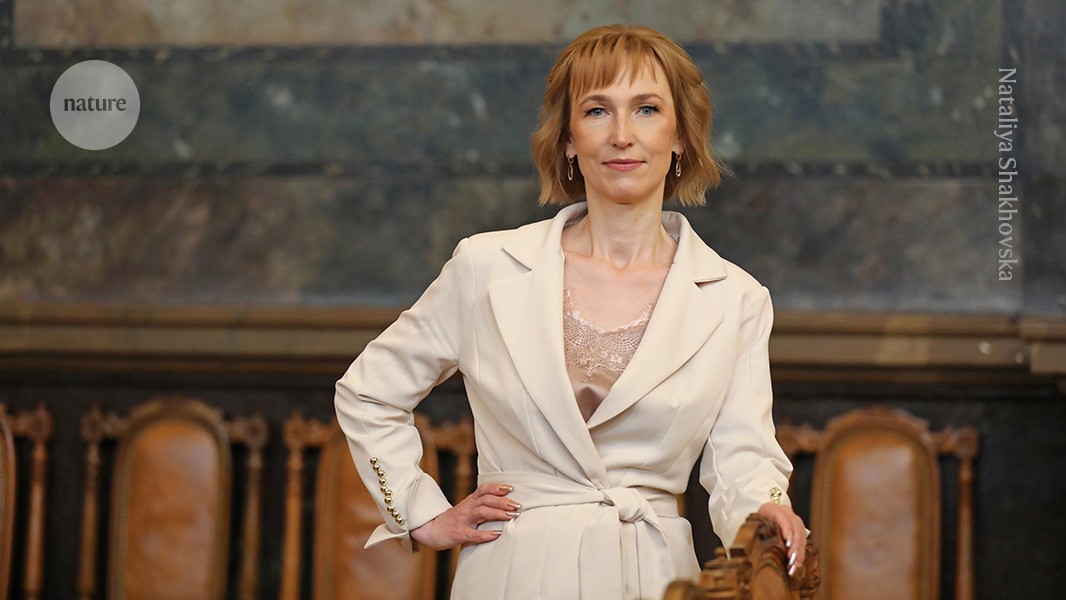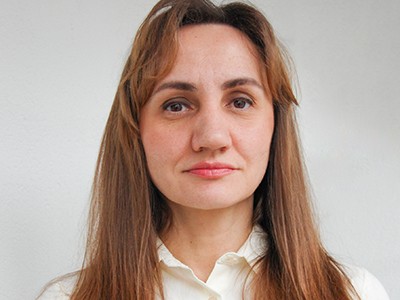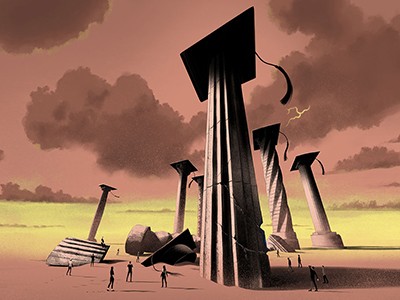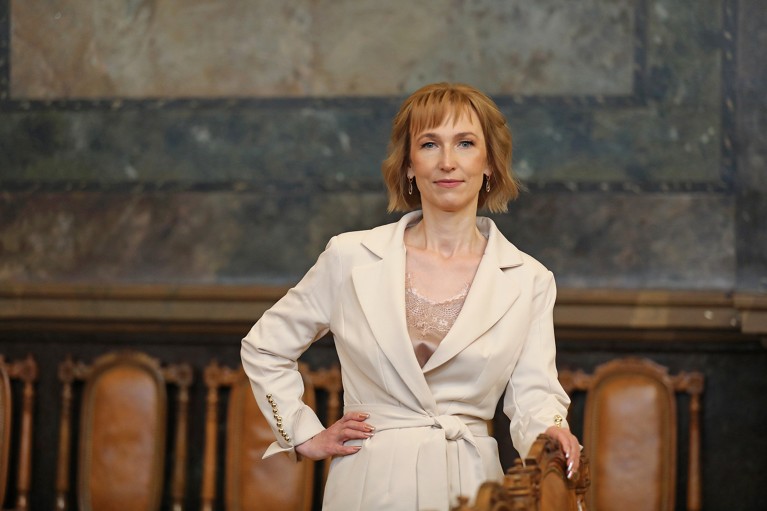
Nataliya Shakhovska hopes to develop strong connections with European institutions.Credit: Nataliya Shakhovska
One of Ukraine’s largest universities inaugurated its first female rector in May. Now, Nataliya Shakhovska is steering Lviv Polytechnic National University’s 35,000 students and 2,500 academic staff members through the fourth year of the Russian invasion, on top of her research on artificial intelligence.
Global geopolitics should not stall science — 5 ways to push back
Shakhovska told Nature how she keeps going and how she’s trying to build up her university to be ‘the best in Europe’.
How do you feel about being the university’s first female rector?
This is incredible. It signals that leadership can and should reflect academic diversity and that the most important criterion is qualification, not gender. And it is a trend across Ukraine. In the past year, women have also won leadership elections at the Kyiv Aviation Institute and the Vasyl Stefanyk Carpathian National University in Ivano-Frankivsk.
In our society, mothers and women have strong roles. The war is a crisis and maybe there is a feeling that a woman can protect us.
You want your university to lead in Europe. How will you achieve that?
Yes, I believe in the transformative power of ambition. Moreover, Ukrainian universities have long been underestimated. Our intellectual resilience, especially in times of crisis, is extraordinary. In my mind, the best university is the one that is the best place for people. We’re not just talking about rankings but about the feeling that ‘I like to spend my time here, not only for work or education, but also because this is a good place for me’.
‘Education is possible in any situation’ — what I’ve learnt from teaching in Kyiv amid a war
Brain drain is a problem in Ukraine. That’s why it is important to show our young people that they can and must stay in the country, not only for education but also for their future careers and to rebuild it.
We need sustained investment in research infrastructure. We need new laboratories and — importantly — deeper international partnerships. We need a culture that rewards innovation and inter-disciplinary thinking. But above all, we need to trust it’s possible, and act accordingly.
Your university was bombed in July. What were the consequences?
The event was not just about the damaging of labs and classrooms: those can be rebuilt. It was about the emotional trauma to students and staff members. And it was about the mobilization of students and staff. Our community understands that we must rebuild, we must continue our work, we must continue our studying. Universities are not only the buildings: they are first of all the people.
How have you kept the community together and motivated?
We are replacing all of the damaged windows. We have raised funds from our partner companies to repair our labs. And for our community, we organized a psychological-support group for students and academics.
We have had to think about a trauma- informed educational model. We are a huge university and it is difficult to know whether any particular student is affected by trauma. We have a psychological-support centre for our students. It is busy all the time.
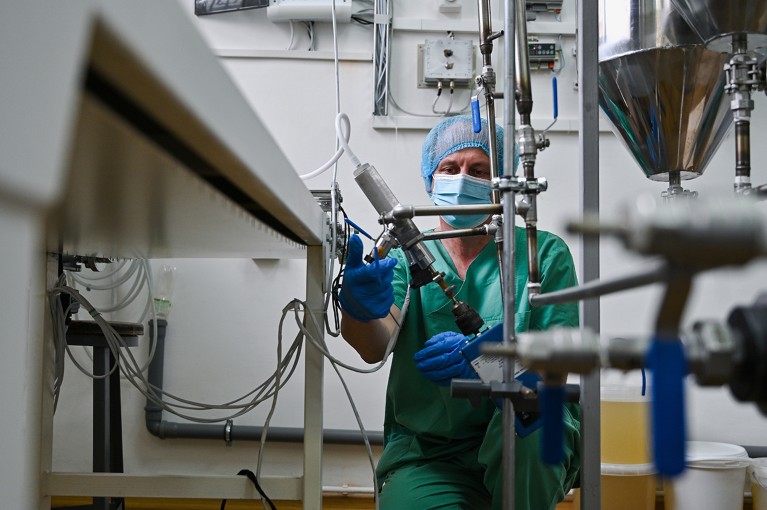
Researchers at Lviv Polytechnic National University in Ukraine are developing hydrogel bandages for treating people with burns and other wounds.Credit: Ukrinform/NurPhoto via Getty
We are also holding a lot of motivational lectures — about new possibilities and time management — and meetings with successful people, not only Ukrainian professors, but also international ones. We organize workshops and courses on non-academic topics for students.
I think these measures are working. Our academic staff members are highly motivated: they want to create something new.
The war has forced your university to innovate — how so?
Conventional education is about lectures, about labs, about practical issues. But having to deal with trauma as well as problems such as access to electricity and materials, it is important that we have a flexible model for our students and staff members.
The future of universities
That’s why we first reviewed our educational facilities. We are currently focusing on opening co-working zones where students and staff members can spend their free time and do their work, and on 24-hour lab access for everyone. In the AI department, students can now access the lab at any time.
And we try to organize ways for our staff members to connect with our international partners. This is one of the most important parts of our strategy. And it is not about emergency support. It is about long-term integration into European research frameworks. This is, I think, the most important innovation.
To what extent has your university’s research pivoted during the war?
Because our economy is working on post-war recovery scenarios, we are having a radical reorganization of research agendas to support this. It is not about publishing papers: we are helping to rebuild the country. We have a renewed sense of purpose.
The most important thing for Ukraine now is the development of technologies, for example, drone systems and energy resilience. For instance, one project is upcycling bomb-damaged concrete into high-quality concrete for reconstruction. It’s funded by the UK government’s InnovateUkraine programme; our engineers have trained using equipment from the University of Leeds, and a mobile rubble-processing line has begun trials near Kyiv. The benefits include carbon dioxide savings, lower construction costs and simpler logistics for reconstruction.


